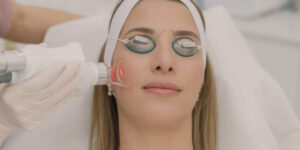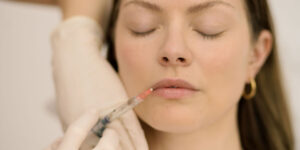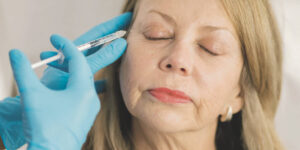Bruxism (Teeth Grinding)
Botulinum Toxin
Teeth clenching and grinding (bruxism) is a common condition that affects many people, often during sleep. It can lead to jaw pain, headaches, and even damage to teeth. While there are different treatments available, including mouthguards, Botox can be an effective option for those who have not found relief with other methods.
Botox is a safe treatment that works by relaxing the muscles responsible for clenching and grinding, reducing their activity and preventing the excessive force that can cause pain and damage to the teeth. This treatment is performed by injecting Botox directly into the masseter muscle, which is the primary muscle responsible for chewing.
Treatment snapshot
30 mins
appointment
1/5
discomfort
Minimal
downtime
Lasts
3-6 months
FAQs
This treatment is suitable for individuals who regularly clench or grind their teeth. It may be right for you if you experience:
- Chronic headaches or jaw pain
- Tooth grinding or clenching
- Tooth wear or sensitivity
- Neck and shoulder tension
- Difficulty opening the mouth or chewing
- Sleep disruption due to teeth grinding
- Stress or anxiety
- Temporomandibular joint disorder (TMJ) and facial pain
A thorough assessment with our doctors is required to determine its suitability. Using a night-guard and consulting your dentist is recommended. Botox treatment for bruxism may also be available through the NHS, discussed with your GP or dentist.
Botox injections are effective for treating bruxism, but they are not a cure. Botox relaxes the muscles involved in grinding and clenching, reducing symptoms. However, treatments must be repeated every 3-6 months for continued effectiveness. Other options, such as stress management techniques and dental appliances, can also help manage bruxism. Consult your healthcare provider for a personalised treatment plan.
During your appointment, our experienced doctors will conduct a thorough consultation, discussing your symptoms and previous treatments. After a facial examination and assessment of tooth wear, if deemed suitable, small amounts of Botox will be injected into the muscles, taking only a few minutes. Mild discomfort may occur but subsides within a day or two. You can resume normal activities immediately, avoiding rubbing or massaging the treated areas for 24 hours. Treatment effects develop within days, with full muscle relaxation in 2-4 weeks. Results last 3-9 months, and repeat treatments may be necessary.
It is generally considered that the benefits of Botox injections for bruxism (teeth grinding and clenching) outweigh the risks. While there are potential risks and side effects to be aware of, such as temporary weakness or pain in the treated area, Botox treatment is generally considered safe when performed by an experienced medical practitioner.
The potential benefits of Botox treatment for bruxism include a reduction in symptoms such as teeth grinding and clenching, which can lead to improved sleep, decreased jaw pain, and even protection against tooth damage. Ultimately, the decision to undergo Botox treatment for bruxism should be made in consultation with a healthcare provider, weighing the potential risks and benefits for your individual situation.
Whist individual experiences of discomfort vary most patients report little to no discomfort during the procedure. We use tiny needles for the injections which may feel like a small pinch or sting. If you are concerned about discomfort during the procedure, you can discuss pain management options with our medical team beforehand. We may suggest applying a numbing cream to the area before treatment.
Common side effects of this treatment include:
- Jaw tenderness or tenderness at the injection site
- Mild discomfort in the treated muscles when chewing for up to two weeks
- Swelling or bruising at the injection site
Botox is generally safe, and most side effects are mild, resolving within a week after treatment. We provide aftercare instructions to help minimise complications. If you experience any unusual or significant effects, please contact us immediately.
Botox is an effective treatment for reducing discomfort and tooth wear caused by clenching and grinding. It can also improve awareness and reduce the frequency of clenching and grinding. Alongside Botox, we recommend consulting with a dentist regarding the use of a night guard to protect the teeth.
Other treatments for bruxism include:
- Cognitive-behavioural therapy (CBT)
- Stress management techniques
- Muscle relaxation exercises
- Acupuncture
- Hypnosis
- Medications (muscle relaxants, anti-anxiety drugs, and antidepressants)
The doctors at Fitzrovia Clinic will determine the most appropriate treatment plan for individual cases of bruxism.








